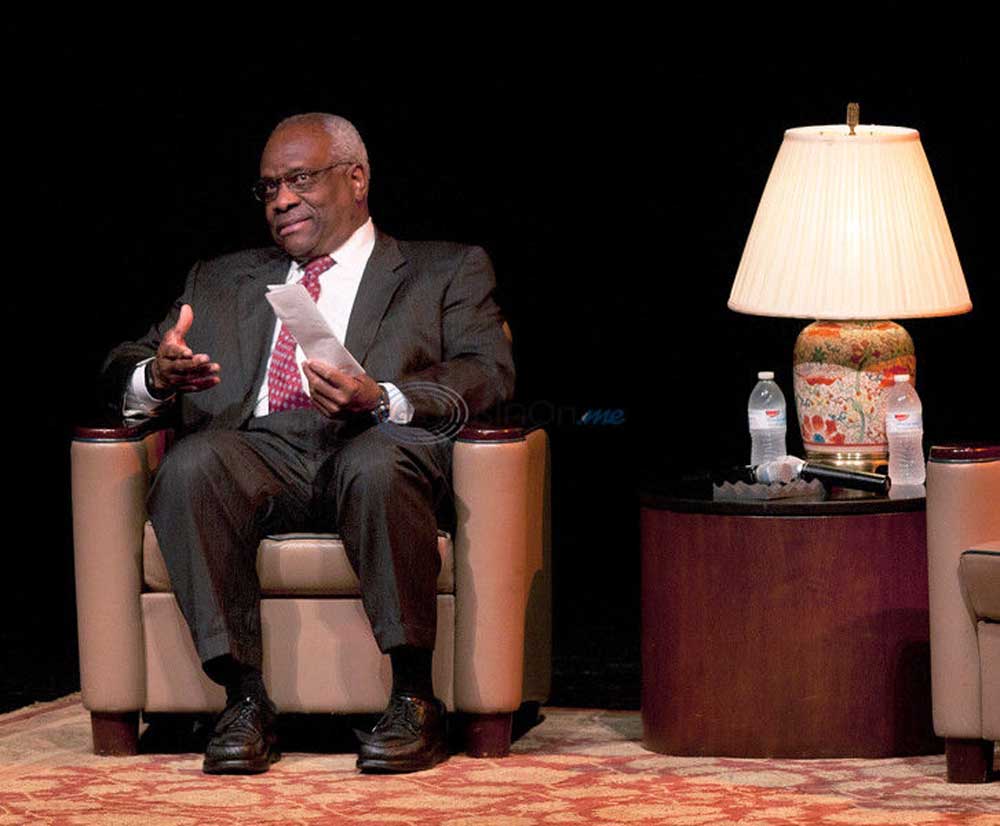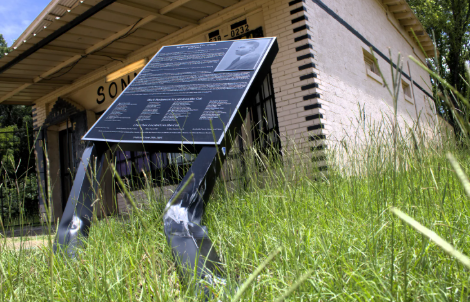Justice Clarence Thomas warns of constitutional ignorance during UT Tyler appearance
Published 2:05 am Wednesday, September 17, 2014

- U.S. Supreme Court Associate Justice Clarence Thomas holds his notes for his speech at the University of Texas at Tyler Cowan Center Tuesday night. (Herb Nygren Jr. photo)
The United States Supreme Court justice known for his silence in the courtroom offered his opinions on patriotism and the Constitution as the opening lecturer of The University of Texas at Tyler Distinguished Lecture Series Tuesday night at The Cowan Fine and Performing Arts Center on campus.
This is the 33rd year of the lecture series, according to UT Tyler President Rod Mabry.
Trending
Clarence Thomas, 66, who has served on the bench since 1991 after being nominated by former President George H.W. Bush, told the audience the Court he’s unapologetically pro-American and pro-Constitution.
“Our country is not perfect,” he said. “I’ve grown up under segregation … spent 20 years in segregated schools. I know how complicated race relations are and how difficult they are.”
Thomas was born in the predominately black community of Pin Point in Georgia near Savannah on June 23, 1948. He was direct descendants of American slaves. But he lived with his grandparents growing up.
He attended Conception Seminary and received a Bachelor’s of Arts cum laude, from Holy Cross College and a Juris Doctorate from Yale Law School in 1974. He was admitted to practice law in Missouri in 1974 and served as an Assistant Attorney General of Missouri from 1974 to 1977. He also practiced law with the Monsanto Company from 1977 to 1979 and was a legislative assistant to Sen. John Danforth (R-Mo.) from 1979 to 1981.
From 1981 to 1982, he served as Assistant Secretary for Civil Rights in the U.S. Department of Education and as chairman of the U.S. Equal Employment Opportunity Commission from 1982 to 1990.
He then became a judge of the U.S. Court of Appeals for the District of Columbia Circuit in 1990. He served for 16 months before his Supreme Court nomination.
Trending
Thomas told the audience that he had a conversation with his predecessor, Thurgood Marshall, the first African American justice, about the nation.
“The thing that has helped propel me, and I had a long talk with Justice Marshall, and we both believed that our country wasn’t perfect, but its perfectible,” he said. “We may not agree on how it’s [to be] perfected, but it’s ours to perfect and not to destroy. Our Constitution is not perfect, but name me a better one.”
Thomas said the Supreme Court performs its duties better than what the media gives it credit for.
“The institution I think functions far better than we give it credit for,” he said. “I disagree with my colleagues, but they are not disagreeable people. I disagree with the approach they take to the Constitution, but I bare no bounds toward them. I don’t know how you can work with people and treat them as though they are the enemy. That’s for people on the outside.”
The associate justice warned of ignorance about the Constitution.
“I bet you more people have read the instructions on how to use your smart phones than read the Constitution of the United States,” he said. “How long would it take to read that short document? If you read it for five minutes a night, you would be done in a week and half. We say we love our country. We love our freedoms, we love our liberty; we love the structure of our government. And yet we’ve never even read the document. And we’ve read the instructions to iPhones. And we know how to program our DVR. I don’t buy it.”
Thomas challenged the audience to take the time and get to know more about the Constitution and the Supreme Court.
“It’s a human institution, neither my colleagues nor I can tell you that we have the gospel … about what we do,” he said.
The lecture was sponsored by Drs. Lawrence L. Anderson and Svetislava J. Vukelja and Rod and Merle Mabry. Dr. Mabry hosted the sold-out evening.






